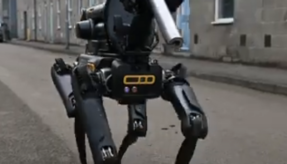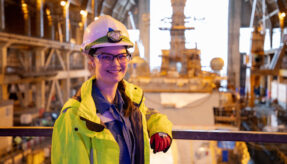
The ‘hangar’, or the Aviation Concepts Environment (ACE), will open up to Dstl, Front Line Commands and invited industry partners.
The ACE is due to open its digital doors in December 2023, and is not only for generation-after-next concepts. It’s also for anything which has the potential to protect and enhance the UK Armed Forces’ fleet of tactical aircraft.
Successful internal testing now means a beta version of the ACE is ready for launch. This happens as the Defence Science and Technology Laboratory (Dstl)-led Tactical Aviation Contested, Degraded and Operationally (T-CDO) limiting environments Integrating Capability Challenge (ICC) continues to gather speed.
The OS-accredited and cloud-hosted online platform will become a key enabler of the 4-year ICC initiative. This initiative seeks to pull through science and technology-based platform and operator solutions to the problems posed by the complexity of a fast-changing battlespace.
Developed in partnership with QinetiQ Training & Simulation, the ACE will serve as a centralised repository for gathering concepts from across the Ministry of Defence (MOD) and industry enterprise that address front line command-identified challenges and capability gaps for tactical aircraft.
Dstl will carry out initial operational analysis of ACE concepts within a set of endorsed scenarios as part of our systematic approach to rapidly exploiting technological advancements.
Liam Ball, Project Technical Authority for the Tactical Aviation CDO programme, said the ACE represented an important first leg of a concept’s flight path from inception to exploitation and would be fully operational before April 2024.
“Engagement is key – this doesn’t work without it, and we really need early engagement with the ACE for it to inform, via thorough analysis and testing, the procurement of kit that is needed to ultimately save lives.”
Tactical Aviation CDO’s collaborative approach to landing the UK and its allies an operational advantage was clear during its latest stakeholder engagement event. This event brought together delegates from across the Armed Forces, academia and industry for a shared first glance at some innovative concepts.
Among those in attendance was Group Captain Steve Austin, Royal Air Force. He described the drive to combat aviation challenges (the proliferation in the use of drones, increasing sophistication of tactical surface-to-air missiles and the cyber and electronic warfare capabilities of adversaries) as a ‘team sport’:
“We need to be able to share those challenges so collectively people can come up with the ideas to solve them.
“To know that you have got other organisations such as Dstl, who are friendly forces, working on your side and also engaging with academia and industry to try and bring collective intellectual rigour to some of our problems is quite reassuring.”







